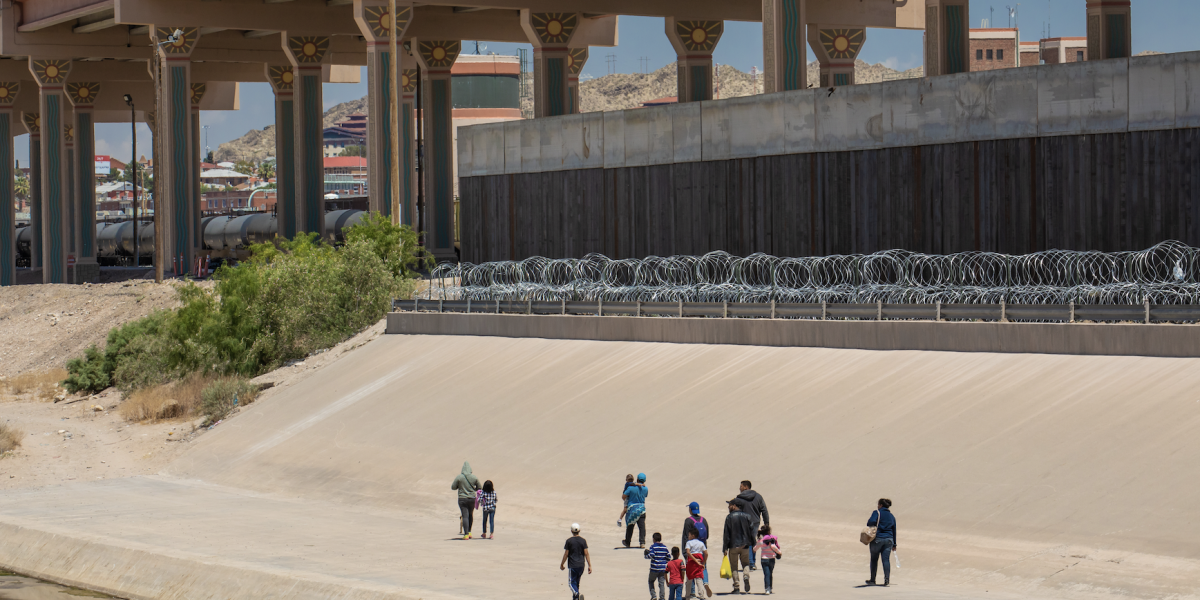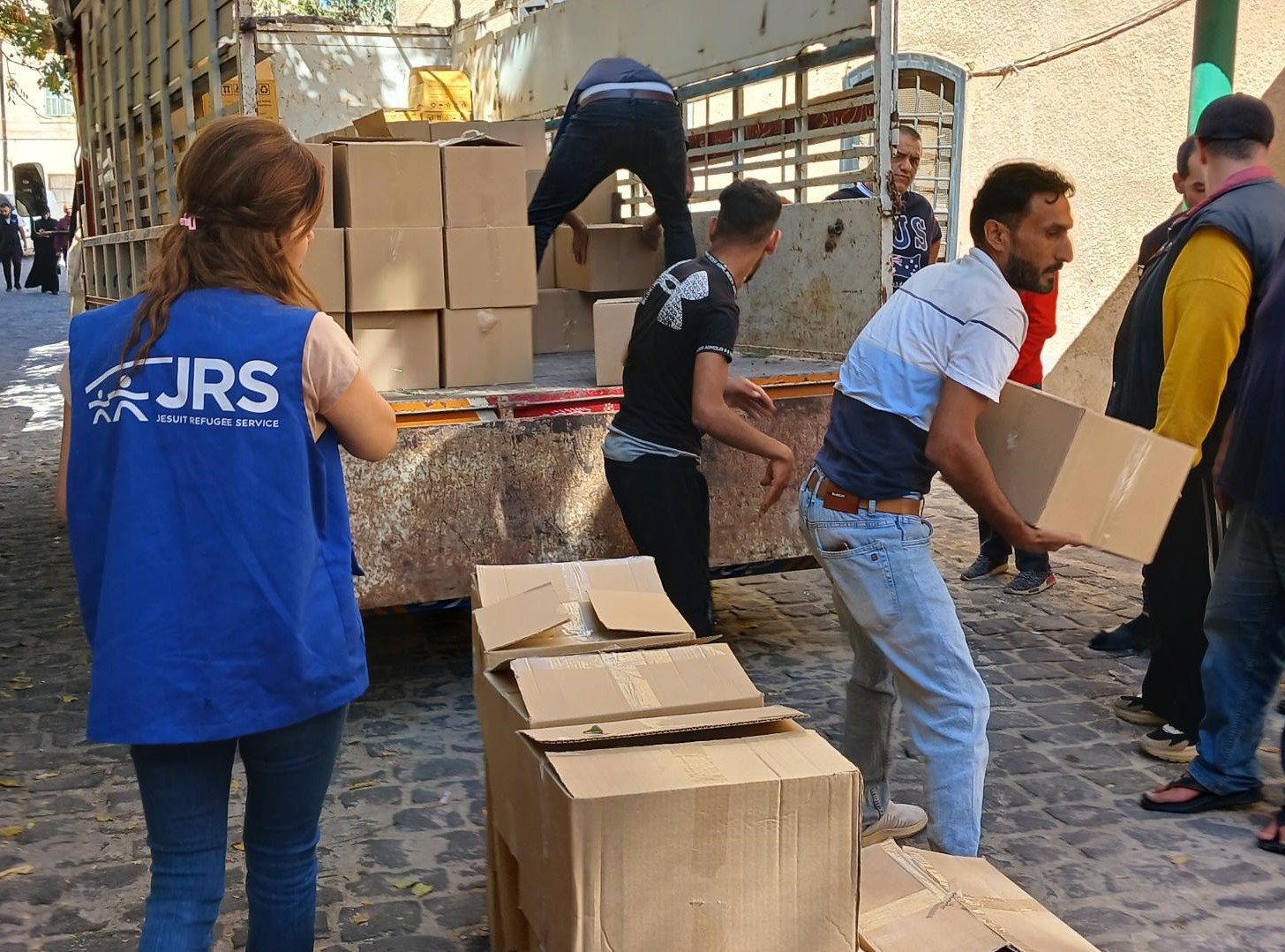Accompaniment at the US – Mexico Border: Webinar Event
03 October 2023|Chloe Gunther

On Wednesday afternoon, JRS/USA and JRS Mexico joined forces to host a webinar discussing their most recent report: Accompaniment at the US – Mexico Border: Conditions Report & Policy Recommendations.
Over 70 people around the country tuned in, from a parish near the Rio Grande to St. Louis University. Participants learned from JRS specialists in advocacy, immigration law, and mental health and psychosocial support (MHPSS).
“The border is a dynamic place where vibrant communities thrive and families call home,” said Josh Utter, Advocacy Officer at JRS/USA. He began the event by illustrating what JRS staff see every day. Restrictive policies continue to turn the lively neighborhoods surrounding the border into places of heartbreak and suffering.
After Title 42, a restrictive pandemic era policy, was rescinded, the Biden Administration immediately implemented “Circumvention of Legal Pathways,” which severely limits people’s access to asylum. The report provides a snapshot of life after Title 42 and the repercussions of additional inhumane policies.
Sara Arlenne Villegas Torres, legal counsel for JRS/Mexico, joined the webinar to discuss the challenges asylum seekers face in finding legal representation while navigating the complicated U.S. system.
Throughout the thousands of miles people travel to get to the U.S. – Mexico Border, vital documents are often lost, robbed, or destroyed, making the legal process that much more arduous.
This past summer, many migrants considered Mexico to be just as , if not more dangerous than the Darien Gap, which is notorious for its life-threatening terrain. Part of the dangers include an increase in kidnappings.
One woman and her children were kidnapped with ransom as they were crossing through Mexico. The woman was pregnant with her fifth child. She went into labor and was still held hostage after she had the baby. Eventually, she raised enough money to escape.
Kidnappers will abduct migrants, both children and adults, and hold them until a ransom is paid. “We are asking ourselves, what happens to the people who cannot pay,” Sara said.
Maria Sajquim de Torres, JRS/USA Director of Domestic Programs, lent insight on JRS’ accompaniment at the border. Since the start of the Caminar Contigo program in 2020, 6,500 people have participated in Mental Health and Psychosocial Support (MHPSS) programs.
Often, JRS must work within a small window, but Maria emphasized the quality of care rather than the quantity.
“We try to help them regulate their emotions and improve their coping skills,” she told participants, touching on JRS’ MHPSS programming. “What we can do is limited in the short amount of time, but we are trying to help them on their journey to destination cities.”
Shelters are at capacity, and after a fire in March claimed the lives of 38 people inside a Ciudad Juárez migrant shelter, migrants are scared to stay inside the cramped, unsafe buildings. “Thousands of people must sleep on the streets,” Sara explained. Some migrant communities have been forced to create their own makeshift camps.
As the event wrapped up, participants had the chance to ask the speakers questions. Giulia McPherson, JRS/USA Vice President of Advocacy and Operations, moderated the Q&A which addressed questions about current legislation, how the greater community in the United States might welcome rather than condemn, and different styles of JRS MHPSS programs.
“This webinar was a call to action for advocates to reach out to their elected representatives, share this report, and urge policymakers to protect US asylum,” said Josh Utter. “We hope advocates will continue to engage JRS as they seek justice for migrants and asylum seekers.”


